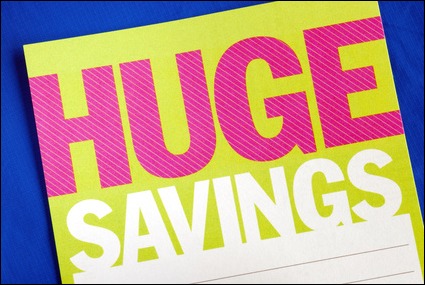Adarling of the social promotion world today is Groupon, a service providing access to deeply discounted products to millions of people at once. Groupon makes money by charging merchants a percentage of sales generated by Groupon.

Because of its ability to reach multiple millions simultaneously, Groupon has been wildly popular, even prompting a nearly $6Billion dollar buy offer from Google. Groupon is a great deal for people looking for a bargain. But it is a good deal for small and independent business owners? I've never quite thought so, and a recent study shows I might be right.
In a recent study conducted by Utpal Dohlakia, Associate Professor of Marketing at Rice University School of Management found that Groupons were profitable for 66% and unprofitable for 32% of merchants surveyed. When compared to merchants with profitable Groupon promotions, those with unprofitable promotions reported significantly lower rates of both spending by Groupon users beyond its face value (25% vs. 50%) and return rates to purchase from the business again at full prices (13% vs. 31%).
Statistics like these make questionable the value of Groupon for very small companies that mainly offer a deeply discounted Groupon deal as a loss leader. In other words, merchants hope customers who buy the discounted (often below-cost) product will buy other items at full price to make up for the discount, and at least break even. Apparently this is not happening consistently.
Are you surprised? I'm not.
People want something for nothing, and if your business is unwise enough to give it to them, it's not their fault when you lose money.
Consider also that the power of social word-of-mouth is undermined with services like Groupon, at least for small companies with small margins. Let's say Sally buys your $10 bar of soap for $1.50 through a Groupon deal. If Sally tells her friends that she bought a fantastic bar of organic handmade lemongrass soap for $1.50, that's nice, but you won't benefit because you can't sell Sally's friend the same product for $1.50.
Not only will you not get Sally's friend's business, but you probably won't get Sally's business again either. No matter how much Sally likes your soap, she probably won't buy it again unless she can get it for $1.50. And because Groupon has so many subscribers, if you make products yourself, you probably won't be able to respond to the orders that come your way anyway. And once you split your take with Groupon, you are not likely to break even. Most small companies can't take that kind of hit.
Deliver Value At A Fair Price, Not A Cheap One
I'm sure the value of Groupon depends on everything from the type of merchant featured to the part of the country (or world!) where the Groupon is offered. If your business can absorb such losses and want to build your mailing list, Groupon may be a good investment for you. But if you want to build a profitable business on a budget, it's best to deliver value at a fair price, not a cheap one.
Question: If you've used Groupon, what was your experience like?



